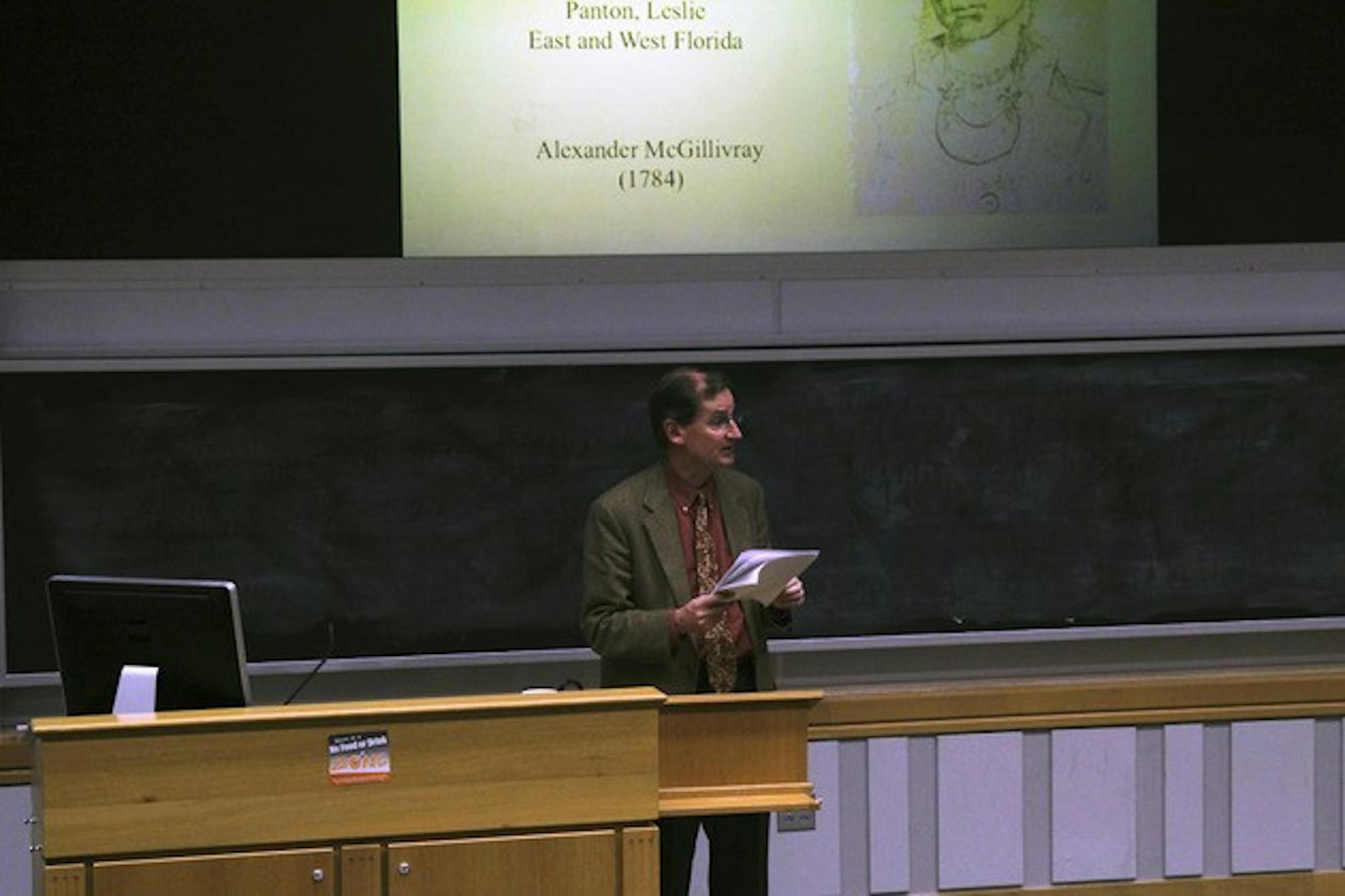The lecture expanded on Gould's most recent book, "Among the Powers of the Earth," which was published in March. While the book covers the United States' attempt to enter the world of European nations in the 18th and 19th centuries, Monday's lecture focused on the decade following 1783.
Gould said that the treaty is an under-recognized document in American history. While most historians focus on the democratic era following the American Revolution, this emphasis on liberty excludes the role of the Spanish by focusing too much on the British and French dimensions, according to Gould. Instead, one should think of the revolution as a moment of "imperialist partition," he said.
He highlighted the terms of the Peace Treaty of 1783, which included the recognition of American independence and Great Britain's cession of the eastern third of North America, southern Quebec and eastern Nova Scotia to the United States and Spain.
Gould identified three areas institutional entanglements, the question of maritime trade and the contested borders along North America in which America and Britain's "entangled history" ensured the peace's fragility.
Many groups viewed the peace treaty as a betrayal, Gould said. The treaty failed to affirm Native American land titles and did not specify a northern border in Britain's cession of western Florida to Spain, allowing Spain to claim a 50-mile strip of land that was also claimed by the United States, he said.
While Congress promised to encourage the American states to compensate British merchants and loyalists for wartime losses, its limited sovereign power rendered it unsuccessful. Britain also promised to return American "negroes" who had escaped during the war, including both slaves and black loyalists, Gould said.
It is important to study the involvement of other countries in the American Revolution to gain a new perspective and to avoid the tendency to think of Americans as having made their own history, he said.
"That is what is interesting about something like the Peace of 1783 when other powers and peoples also were so directly involved," Gould said in an interview with The Dartmouth. "It really brings out that collaborative nature of history."
Gould said that he hopes to expand the lecture into a paper and eventually a book that focuses on the groups including Native Americans, African-Americans and white settlers that felt that they were excluded during the American Revolution. He said he initially became interested in history and the American Revolution partially because of his family background, since his parents came from places that were less recognized in the war's history because they were at the margin of what became the United States.
"I think that its this outer history of the revolution it's really a question that I've been interested in throughout my career," Gould said.
David Hildebrand '13, who attended the lecture, said he agreed that the interplay between the English and the Spanish around the American Revolution did not get much attention in "pop history."
Paul Strauch '13 said that the lecture met his expectations.
"I was hoping that Gould was going to take an interdisciplinary approach to the theory of empire, and I was really pleased when he starting talking about the sociopolitical, economic and cultural ramifications of the treaty," he said.
The lecture, titled "American Revolution and the Making of a New World Empire," was sponsored by the Rockefeller Center under the auspices of the International History Group, according to history professor Robert Bonner.




